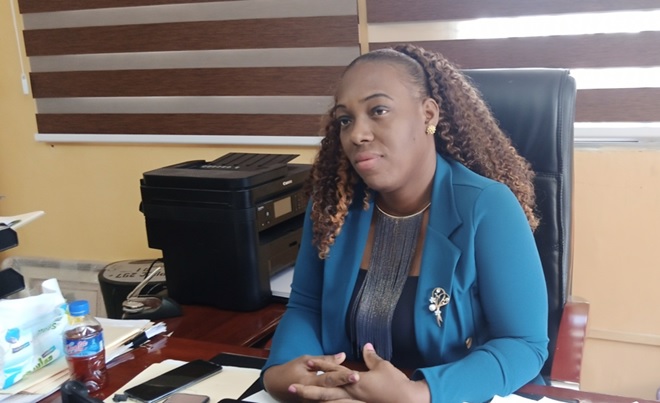LIBERIA – The Public Procurement and Concession Commission (PPCC) has rejected the “No Objection” request made to it by the National Election Commission (NEC) to allow a Chinese firm, EKEMP the right to supply and deliver biometric equipment, software, and materials for the 2023 voter registration exercise.
The PPCC also criticized the NEC for claiming that EKEMP and its joint venture partners met all of its bid requirements when the fact speaks the contrary.
It pointed out that a review of NEC’s request shows that none of the electoral body’s bid evaluation panel in its entirety watched the bid demonstrations exercise.
PPCC said there is no proof showing a full report of the demonstration process.
PPCC urges NEC to return to the status quo ante and reexamine the conditions upon which it selected EKEMP and partners.
The PPCC’s said it will not approve the NEC request of August 30, seeking authorization to grant EKEMP the right to begin the procurement of biometric equipment for the 2023 general elections.
A communication from the Executive Director of the PPCC to NEC says the electoral body should note that the photo submission cannot do justice to depicting the physical demonstrations, for they are still static illustrations that cannot rightly capture the motions of the enrolment and de-duplication process.
Madam Jargbe Roseline Kowo, a key role of the Commission under its prior review mandates is to authenticate that the bidding processes conducted are done in line with applicable procedures, fairly, and transparently; and that bidders are treated equitably in terms of review and scrutiny.
She stated that her request for video recording and a power-point presentation of the bid demonstrations aims to ensure there is a fair review of submissions by attaining more information on the indicated demonstrations prior to approval.
She indicated that as per the NEC’s submission to PPCC, a determining factor under the bidding process was the demonstration of the biometric process including the enrolment and de-duplication processes.
“The usability and functionality of biometric equipment and software were key factors for NEC’s evaluation, and also determining factors upon which some bidders were eliminated as per the [NEC] biometric evaluation panel report.
“Apart from the still photos submitted by NEC’s evaluation panel, there is no indication that the NEC bid evaluation panel in its entirety was part of the viewing of the physical demonstrations or is there any proof showing a full report of the demonstration process.
NEC, in a response to the PPCC, disagreed and stated that all procedures as cited in the bid document were followed and executed accordingly — and that the procurement panel evaluated all bidders unbiasedly and selected EKEMP as the most responsive bidder.
It further pointed out that the presentation of vendors was done physically before its bid evaluation panel, but there was no video taken, and that the panel did not request any power-point presentations.
“As the PPCC is aware, the term ‘most responsive bidder’, on the basis of which the contract shall be awarded to the corresponding bidder, means the bidder with the best value for money considering technical specifications, delivery, etc., which are the benchmarks for the award of contract,” the NEC chairperson Davietta Brown Lansanah said in a letter to the PPCC on September 13.
The NEC boss noted that its standard bidding document did not require bidders to notarize their joint venture as requested by PPCC and that the document also did not require any vendor to do a video recorded demonstration before the procurement evaluation panel.







